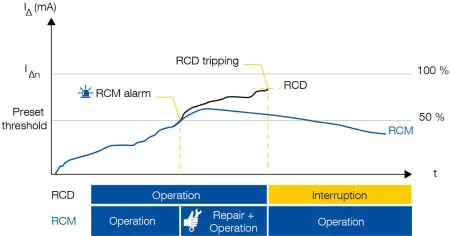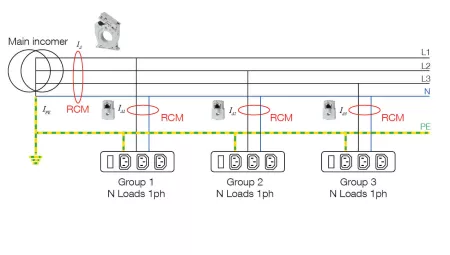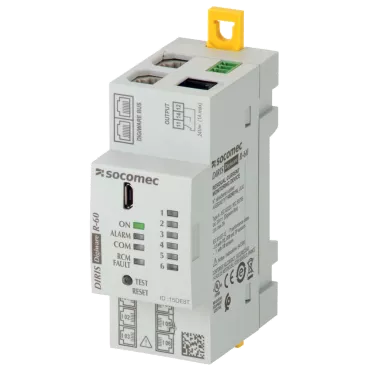Monitor residual currents
For TN-S earthing systems the use of a residual current device (RCD) is mandatory. The relevant requirements are set out in IEC 60364-4-41.
RCD exemption is allowed under the supervision of a skilled operator.
As recommended by EN 50600-2-2: Data centre facilities and infrastructures, monitoring the residual current by an RCM (Residual Current Monitor) can identify the occurrence of an insulation fault to avoid any risk of service interruption or fire.
With the presence of an RCM, periodic measurement of insulation resistance is not necessary in accordance with IEC 60364-6 standard.
* Residual current is also called differential current or earth fault current.
What is the difference between RCD and RCM?

An RCD is a device that disconnects faulty circuits from the system when the residual current increases and becomes a risk to people and property.
An RCM is a device that alerts the user to a growing residual current, without switching off the faulty circuits. It prevents critical situations such as service interruption or the risk of fire.
Where should the RCM be located in the data centre?

The data centre earthing system is TN-S.
The three-phase power supply is distributed to single-phase IT servers.
An insulation fault can be located if the residual currents are measured as close as possible to the servers.
To fully map residual currents, the RCM will need to be located at the top of the installation as well as at the level of each server bay.
Socomec solution
DIRIS Digiware RCM innovative residual current monitoring system
DIRIS Digiware RCM was designed to equip a data centre's entire electrical distribution. Residual current measurement is accurate from 3 mA. The data is centralised, viewed on a screen and available on a dedicated web server.
Several alarm types are available :
- Single threshold ;
- Dynamic threshold according to the variation in load current (patented technology) ;
- Comparison with the earth current.
Variations in residual current are recorded by time, day and week. In case of alarm, the operator is informed by a local LED alarm, a remote notification and an email.




